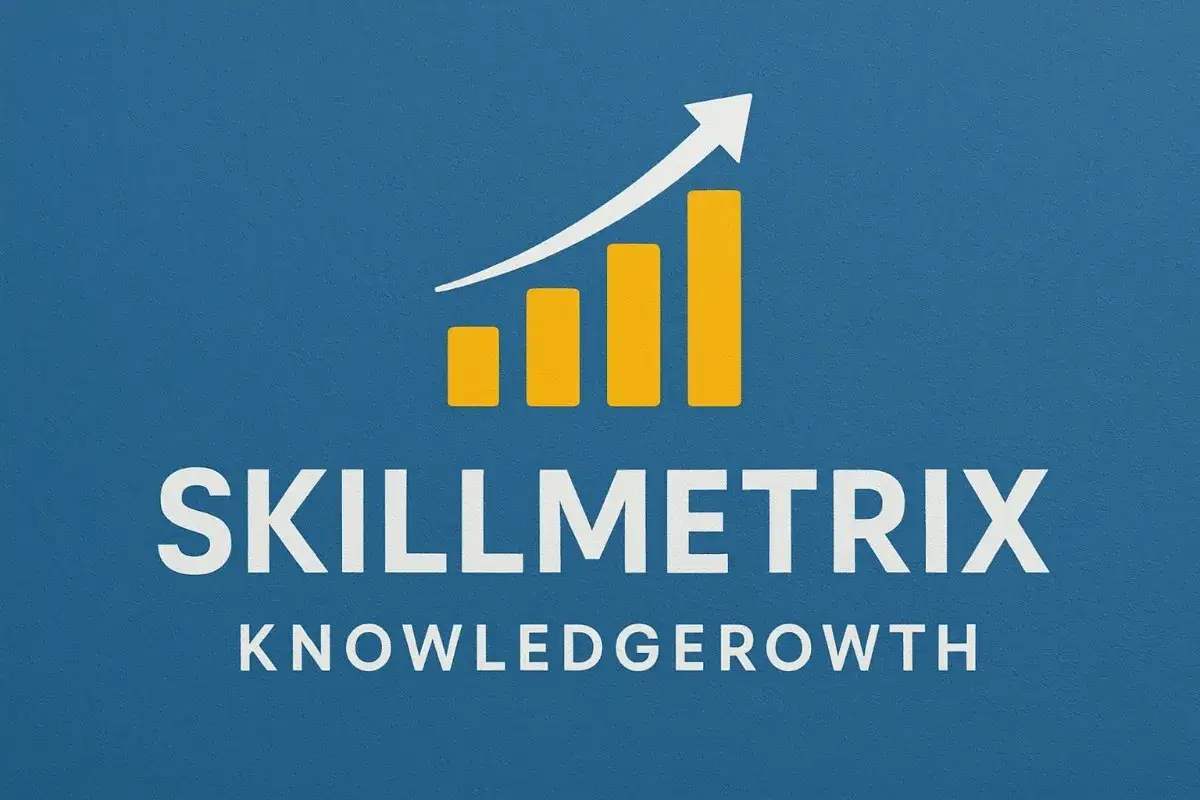share
LATEST
SkillMetrix Knowledg: A Deep Dive into Its Meaning, Application & Benefits
Oct. 14, 2025
147 Views
1. What Is SkillMetrix Knowledg?
“SkillMetrix Knowledg” refers to a concept, platform, or framework that measures, organizes, or delivers knowledge and skills (competencies) in a structured way. The term combines “Skill” (the ability to do something well) + “Metrix” (metrics, measurements) + “Knowledg” (knowledge, expertise). Put together, it is about quantifying and managing knowledge and skills.
Key components often include:
-
Assessment of individual skills
-
Tracking knowledge growth over time
-
Categorizing skills by domain or level
-
Offering learning resources aligned with assessed gaps
2. Core Features of SkillMetrix Knowledg
a) Skill Assessment
It involves tests, quizzes, or evaluation methods to determine what skills or knowledge a person has or lacks.
b) Knowledge Mapping
Mapping what a person already knows, what they need to learn next, and where improvement is needed.
c) Feedback & Analytics
Providing detailed feedback (strengths, weaknesses), along with metrics to see progress over time.
d) Development Roadmaps
Based on assessment, recommending learning paths, resources, or tasks to build missing skills.
3. How SkillMetrix Knowledg Can Be Used
SkillMetrix Knowledg can be applied in several scenarios:
-
Individual Learning and Self-Improvement – Learners use it to find their strengths and gaps, then design self-study plans.
-
Corporate Training – Organizations apply it to assess employee skills, plan training programs, and track performance.
-
Academic Institutions – Schools or colleges include it in curricula to monitor student progress and readiness.
-
Career Planning – Professionals use knowledge metrics to decide which certifications or courses to take next.
4. Benefits of Using SkillMetrix Knowledg
-
Clarity of Strengths and Weaknesses: Clear insight into what you know and what needs improvement.
-
Structured Learning Paths: Rather than random learning, you follow a roadmap.
-
Motivation & Tracking: Seeing metrics and progress often motivates better performance.
-
Better Decision-Making: For choosing which skills, tools, or courses to invest time in.
-
Consistency: Ensures a steady pace of knowledge acquisition rather than sporadic learning.
5. Common Challenges and How to Overcome Them
| Challenge |
Solution |
| Assessment Accuracy |
Use reliable test sources, multiple formats (MCQ, tasks) to ensure valid scores. |
| Motivation Drop |
Set short-term goals, reward progress, use peer groups or mentors. |
| Resource Overload |
Pick high-quality, relevant resources; avoid information overload. |
| Measuring Soft Skills |
Use peer review, project-based evaluation, feedback from mentors. |
6. How to Implement SkillMetrix Knowledg in Your Life
Here’s a step-by-step plan:
-
Self-Assessment: List the skills you want (technical, soft, domain-specific), take diagnostics/tests.
-
Knowledge Mapping: Identify current level vs desired level for each skill.
-
Set Goals: Prioritize a few skills with clear actionable goals (e.g. “improve presentation skill to level X within 3 months”).
-
Choose Learning Resources: Books, courses, mentors aligned with your gap areas.
-
Track Progress: Use tools or journals to note your learning, tests, feedback.
-
Adjust: Based on feedback or test results, tweak your learning plan.
7. Use Cases: Who Can Benefit Most
-
Students preparing for competitive exams or skill certification.
-
Professionals aiming for promotions or switching fields.
-
Managers/HR wanting to assess team capabilities.
-
Freelancers who want to build credibility by showcasing knowledge growth.
8. Common Misconceptions about SkillMetrix Knowledg
-
It’s not just for experts – beginners get more value.
-
It’s not a one-time thing – measurement and growth are ongoing.
-
It’s not only about technical skill – includes soft skills, creativity, communication.
-
It’s not cheating – knowledge metrics encourage honest self-improvement, not shortcuts.
9. Best Practices for Maximizing SkillMetrix Knowledg
-
Be honest in assessments.
-
Use diverse assessment formats (projects, quizzes, peer review).
-
Regularly revisit metrics (monthly or quarterly).
-
Seek feedback from multiple sources (mentors, peers, self).
-
Celebrate small wins to stay motivated.
10. Summary and Conclusion
“SkillMetrix Knowledg” is a powerful framework for measuring, improving, and applying what you know and what you can do. Whether you are learning a new technology, improving communication, or building a professional portfolio, using metrics helps you stay on track, make better decisions, and grow more systematically.
If you adopt the mindset of continuous assessment + structured improvement + tracking progress, SkillMetrix Knowledg can become a key tool in your personal and professional growth journey.
Frequently Asked Questions (FAQ)
Q: Is SkillMetrix Knowledg the same as Skill Matrix?
A: While similar, “Skill Matrix” often refers to a chart showing skills vs people. SkillMetrix Knowledg goes further—it includes measurement, tracking, and development based on those metrics.
Q: Can I use SkillMetrix Knowledg without a formal platform?
A: Yes. You can self-assess, map your skills, track learning with basic tools like spreadsheets or journals.
Q: How often should I reassess?
A: Ideally every 1-3 months, depending on how intensive your learning is.
Q: Does it apply only to technical skills?
A: No. Soft skills, leadership, communication, creativity are equally important and measurable if you set clear criteria.
share Share now









